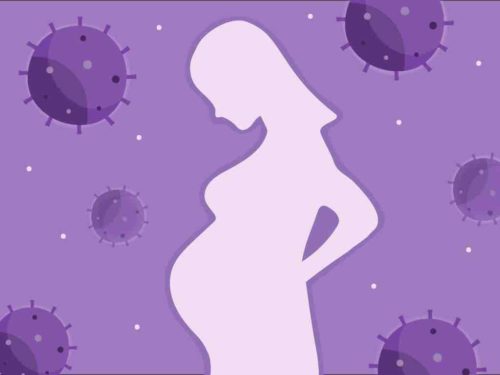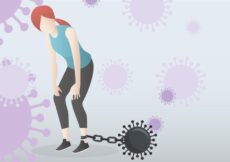January 27th, 2022
The evidence about the safety and efficacy of the COVID-19 vaccines has only grown stronger since Pfizer’s mRNA version was approved for emergency use in December 2020. Misinformation has been clarified about the infection and the vaccines that help prevent serious outcomes, and disinformation has been debunked over and over again during the course of the pandemic. The PediaBlog addressed one stubborn myth last May:
One rumor making the rounds about COVID-19 vaccines is that they can interfere with fertility. They can’t. It’s a myth. Ongoing surveillance by the three vaccine makers have failed to reveal negative effects impacting fertility in men or women. There doesn’t appear to be any mechanism of action by which reproductive functions would by damaged by any one of the three vaccines in use against COVID-19.
There have been anecdotal reports of erratic menstrual cycles in women who receive COVID vaccines. A new study confirms that some women do indeed experience slightly longer menstrual cycles after vaccination compared to women who aren’t vaccinated. While cycle lengths were on average one day longer than usual, Roni Caryn Rabin reports that the effect was transient and didn’t affect fertility:
The delay was more pronounced in women who received both vaccine doses during the same menstrual cycle. These women had their periods two days later than usual, the researchers found.
The study, in the journal Obstetrics & Gynecology, is one of the first to support anecdotal reports from women that their menstrual cycles were off after vaccination, said Dr. Hugh Taylor, the chair of the department of obstetrics, gynecology and reproductive sciences at Yale School of Medicine.
“It validates that there is something real here,” said Dr. Taylor, who has heard about irregular cycles from his own patients.
At the same time, he added, the changes seen in the study were not significant and appeared to be transient.
“I want to make sure we dissuade people from those untrue myths out there about fertility effects,” Dr. Taylor said. “A cycle or two where periods are thrown off may be annoying, but it’s not going to be harmful in a medical way.”
There is no evidence that getting a COVID-19 vaccine affects fertility in males and females. However, last year The PediaBlog examined good evidence that being infected with the virus can cause fertility problems in males:
There is new evidence that infection with SARS-CoV-2 can lead to erectile dysfunction and male infertility. Researchers are blaming vascular effects, psychological stress, and impaired heart and lung functions seen in men with COVID-19 for their erectile dysfunction. Testicular dysfunction and testosterone deficiency have also been noted in some male patients recovering from COVID-19. Cleveland Clinic says not enough is known about these potential impacts to be certain whether the damage is temporary and permanent.
A new study published this month in the American Journal of Epidemiology confirms that getting sick with COVID-19 can impact male fertility, while COVID vaccination does not. Amanda D’Ambrosio reveals the study’s findings:
Couples who were vaccinated against COVID-19 did not have a lower likelihood of getting pregnant, but previous infection with SARS-CoV-2 could affect male fertility, according to a prospective study.
Both female and male partners who had at least one COVID-19 vaccine dose did not face lower chances of getting pregnant than unvaccinated patients.
However, couples who had a male partner infected with SARS-CoV-2 within 60 days of the menstrual cycle had an 18% lower likelihood of achieving pregnancy, suggesting that COVID-19 illness could negatively impact male fertility in the short-term, reported Amelia Wesselink, PhD, of Boston University, and colleagues.
For couples interested in starting or expanding a family, there is no reason to delay vaccination during the pandemic:
These findings, in addition to what we know about the dangers of COVID-19 illness in pregnancy, show that “the preconception period is a really great time to get vaccinated,” she added.
The findings provide healthcare providers with additional data showing that vaccines do not affect fertility outcomes, which will support them in counseling their patients, said James Grifo, MD, PhD, director of the NYU Langone Fertility Center in New York City, who was not involved in this study.
“The good news for women trying to get pregnant, is that they can get their vaccine and not worry,” Grifo told MedPage Today. “We knew that before — but now we have more data.”
COVID vaccines are safe to give during pregnancy, too. That’s a good thing because COVID-19 creates a dangerous situation for expectant mothers and their babies.
The vaccines are safe. COVID-19 isn’t.




































